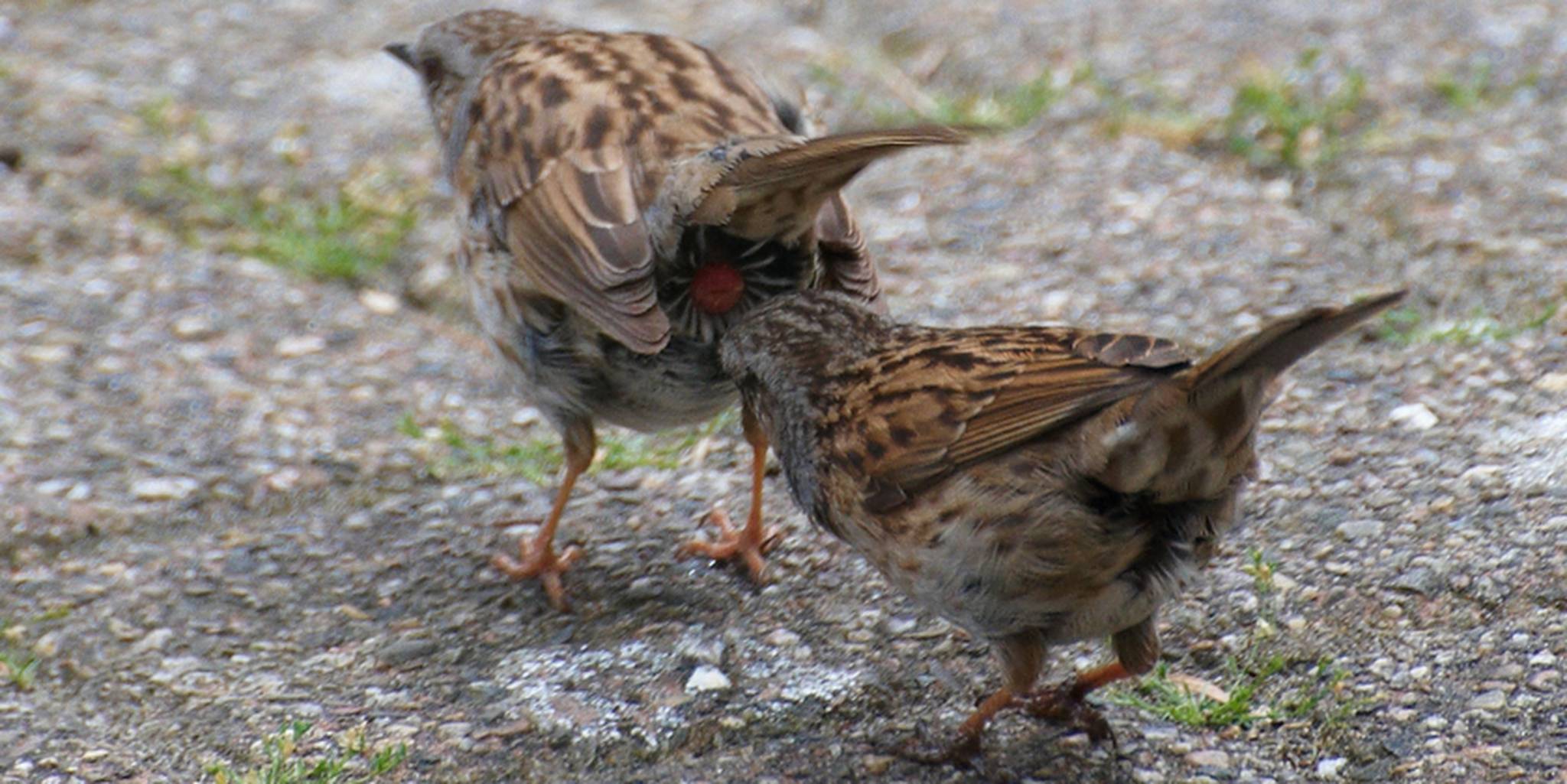Have you ever wondered, “Do birds fart?” No? Well maybe now we’ve sparked your curiosity.
They don’t fart—detectably. There’s no reason to believe that birds are somehow exempt from passing gas, but it doesn’t seem like anyone has ever truly observed—or more importantly, measured—a bird fart. But between ornithologists, veterinarians, and amateur bird watchers, how is it possible no one has ever seen the feathered creatures flatulate?
As Monterey Bay Aquarium veterinarian Mike Murray said in a 2009 article for Popular Science, birds are capable of passing gas, but they don’t because they lack the same combination of diet and gas-forming bacteria in their gut that gives mammals their odorous gas. Murray added that if he spotted gas in an x-ray of a bird’s gastrointestinal tract, he’d be concerned something was wrong with the bird.
But Laura Eriksen, a birder, educator, and blogger at the Cornell Lab of Ornithology, has a different theory. In a blog post on her website, she posits that birds have much shorter digestive tracts than mammals, so there’s less time for gas to build up, allowing farts to slip by undetected.
In another blog post, she describes the only written account she’s aware of describing a possible bird fart. It comes from former Cornell student Alan Richard Weisbrod, in his 1965 master’s thesis on blue jays.
One of the birds in front of me defecated. A small puff of whitish gas was expelled along with the feces. The feces dropped from the bird while the gas wafted below and parallel to the slightly raised tail, until it dissipated rapidly into the cold air. The gas could be clearly seen against the dark-colored eave that hangs over the sheltered perches, upon which the birds were fluffed and resting. Several days later a bird perched in the same position was observed to defecate with the accompanying wisp of whitish gas.
Weisbrod goes on to describe how birds eat similar diets to many mammals who definitely flatulate but explains that he could not find any other accounts of bird flatulence at that time. (And apparently no scientist has stepped up to the plate to follow up on Weisbrod’s observation.) He also acknowledges that the “wisp of whitish gas” could also have simply been water vapor—steam rising from the feces. (Just think of how your dog’s poop steams in the cold when you take him out for his daily business in the winter.)
It’s a little difficult to know for sure that birds rarely or never fart. According to Mental_Floss, human farts are smelly due to a combination of our diets and the microbes in our guts that help digest the foods in our diets. A video by AsapSCIENCE adds that “the longer the food stays in the gut, the more time it has to ferment” and break down into its smellier components—namely sulfur. So if birds don’t have the right food-microbe combo and intestinal length to produce smelly gas, then we wouldn’t smell it.
Without a smell, bird farts rustle no one’s feathers.
But even if birds produced immaculate, odorless gas, would we hear it? That is less clear. According to a Q&A with proctologist Lester Gottesman in VICE, farts make a sound due to the composition of gas and the shape (read: tightness) of the sphincter. A lot of the gas that makes up a fart, Gottesman said, is swallowed air. And a lot of swallowed air leads to a lot of gas, which can make a bigger, beefier noise. But how much air does a swallow swallow when a swallow swallows air?
As far as we could tell, this isn’t a question any scientist has specifically tried to measure. But the Daily Dot reached out to the Cornell Lab of Ornithology for answers nonetheless. According to an ornithologist there, relayed via email by the lab’s good-humored press officer Miyoko Chu, birds definitely swallow air. But he thinks they expel it via burping rather than farting. He added that he thinks birds do fart “in some cases and would depend on what species, their diet, and whether it is observable.” He also said that he’s never personally noticed a bird fart.
Lastly, maybe they do swallow enough air that would leave most animals saying “excuse me” after a butt-bellow, but perhaps something about the construction of the, erm, exit point keeps it from making a sound. This is pure speculation, but maybe something about having feathers around the bird’s cloaca (its all-purpose back-end chute) helps the fart slip by unnoticed. And without a smell, bird farts rustle no one’s feathers.






